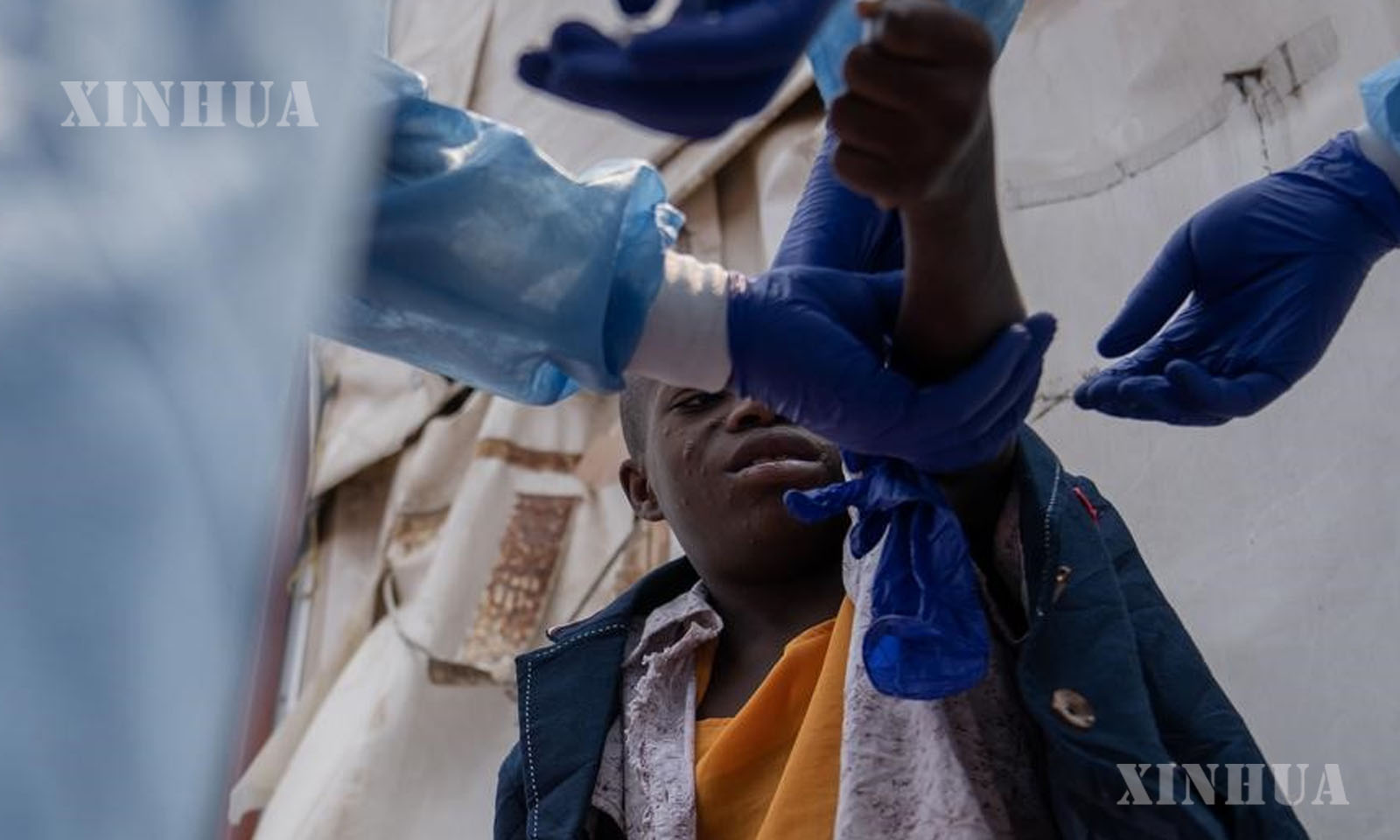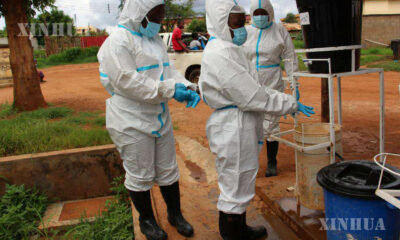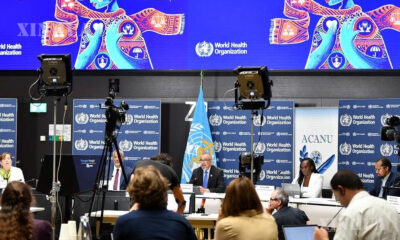International Organizations
ဒဗလျူအိတ်ချ်အိုက မျောက်ကျောက်ရောဂါကို ကမ္ဘာလုံးဆိုင်ရာ ပြည်သူ့ကျန်းမာရေး အရေးပေါ်အခြေအနေမှ ပယ်ဖျက်

ဂျီနီဗာ၊ စက်တင်ဘာ ၆ ရက် (ဆင်ဟွာ)
အာဖရိကတွင် မျောက်ကျောက်ရောဂါ (monkeypox) ပျံ့နှံ့မှုအပေါ် ကမ္ဘာလုံးဆိုင်ရာ ပြည်သူ့ကျန်းမာရေး အရေးပေါ်အခြေအနေ (PHEIC) အဖြစ် သတ်မှတ်ရန် မလိုအပ်တော့ကြောင်း ကမ္ဘာ့ကျန်းမာရေးအဖွဲ့ (WHO) က စက်တင်ဘာ ၅ ရက်၌ ကြေညာခဲ့သည်။
ဒဗလျူအိတ်ချ်အို အရေးပေါ်ကော်မတီသည် မျောက်ကျောက်ရောဂါ (mpox ) ဖြစ်ပွားမှုကို သုံးလတစ်ကြိမ် စိစစ်သုံးသပ်ခဲ့ကြောင်းသိရသည်။ “ ယမန်နေ့က တစ်ဖန်တွေ့ဆုံကာ အမြင်များသုံးသပ်ခဲ့ရာမှာ လက်ရှိ အခြေအနေဟာ နိုင်ငံတကာကျန်းမာရေး အရေးပေါ်အခြေအနေအဖြစ် ဆက်လက်သတ်မှတ်ရန် မလိုတော့ ကြောင်း အကြံပေးကြပါတယ်၊ ဒါကိုလက်ခံပါတယ်” ဟု ဒဗလျူအိတ်ချ်အို ညွှန်ကြားရေးမှူးချုပ် Tedros Adhanom Ghebreyesus က စက်တင်ဘာ ၅ ရက်တွင် မီဒီယာများအား ပြောဆိုခဲ့သည်။
“ဒီဆုံးဖြတ်ချက်ဟာ ဘူရွန်ဒီ၊ ဆီရီယာလီယွန်နဲ့ ယူဂန္ဓာ အပါအဝင် အခြားရောဂါဖြစ်ပွားနေတဲ့နိုင်ငံတွေနဲ့ ဖြစ်ပွားမှု၊ သေဆုံးမှု လျော့ကျနေတဲ့ ကွန်ဂိုဒီမိုကရက်တစ်သမ္မတနိုင်ငံကို အခြေခံထားပါတယ်” ဟု Tedros က ပြောကြားခဲ့သည်။
“ကူးစက်ပျံ့နှံ့စေတဲ့ အကြောင်းရင်းတွေ ရောဂါစိုးရိမ်ရတဲ့အခြေအနေတွေကို ကျွန်တော်တို့ ပိုမိုနားလည်လာသလို အများဆုံးဖြစ်ပွားခဲ့တဲ့နိုင်ငံတွေကလည်း တည်တည်ငြိမ်ငြိမ် တုံ့ပြန်နိုင်စွမ်းရှိလာကြတယ်” ဟု ၎င်းက ပြောကြားခဲ့သည်။
Mpox သည် တိရစ္ဆာန်မှကူးစက်သော ဗိုင်းရပ်စ် ဖြစ်ပြီး လူတွင်ကူးစက်ခံရသည့် ကနဦးရောဂါလက္ခဏာများမှာ ဖျားနာခြင်း၊ ခေါင်းကိုက်ခြင်း၊ ကြွက်သားများနာကျင်ခြင်း၊ ကျောအောင့်ခြင်းနှင့် အရည်ကြည်ဖုများ ရောင်ရမ်းခြင်းနှင့် နောက်ပိုင်းတွင် မျက်နှာနှင့် ခန္ဓာကိုယ်ပေါ် အဖုအပိမ့်ထွက်ခြင်းများ ဖြစ်သည်။ ရောဂါကူးစက်ခံရသူ အများစုသည် ရက်သတ္တပတ်အနည်းငယ်အတွင်း နေပြန်ကောင်းလာနိုင်သော်လည်း တချို့တွင် အပြင်းအထန် ဖျားနာကာ အသက်သေဆုံးသည်အထိဖြစ်နိုင်ကြောင်း သိရသည်။ (Xinhua)
……………………..
(English Version)
WHO says mpox no longer a global public health emergency
GENEVA, Sept. 5 (Xinhua) — The spread of mpox (monkeypox) in Africa no longer represents a Public Health Emergency of International Concern (PHEIC), said the World Health Organization (WHO) on Friday.
WHO’s Emergency Committee has met every three months to evaluate the outbreak of mpox. “Yesterday, they met again and advised me that in their view, the situation no longer represents an international health emergency. I have accepted that advice.” said WHO Director-General Tedros Adhanom Ghebreyesus in the media briefing on Friday.
“This decision is based on sustained declines in cases and deaths in the Democratic Republic of the Congo, and in other affected countries including Burundi, Sierra Leone, and Uganda,” said Tedros.
“We also have a better understanding of the drivers of transmission, the risk factors for severity, and the most affected countries have developed a sustained response capacity,” he said.
Mpox is a viral zoonotic disease. Initial symptoms of human infection include fever, headache, muscle aches, back pain, and swollen lymph nodes, which can later develop into widespread rashes on the face and body. Most infected individuals recover within a few weeks, but some may experience severe illness or even death.
Photo : A boy caught mpox gets treatment at a hospital on the outskirts of Goma, North Kivu province, eastern Democratic Republic of the Congo (DRC), on Aug. 19, 2024. (Str/Xinhua)






